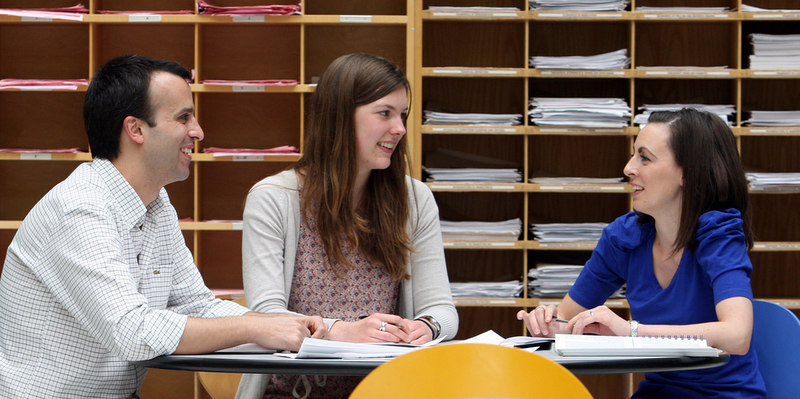
May 2, 2012, by ICCSR
Doctoral CSR Research: future themes, novel methods and getting published!
On the 25th of April, the ICCSR welcomed 24 PhD students from Europe, the United States, Australia and UK for the ICCSR 10th Anniversary PhD workshop titled ‘Experimental Economics & Qualitative Research in Business and Society Studies’. During this day, we were able to share ideas, exchange tips and discuss issues faced during the exciting (and sometimes painful!) process of doing a PhD.
We started the day with a panel entitled ‘Publishing off your PhD: Some lessons from recent graduates’, which was given by Dr Dorothea Baur (University of St. Gallen) and Dr Robert Caruana (ICCSR). In this session, they addressed many relevant issues such as publishing timelines, the review process, writing with co-authors, etc. Dorothea and Robert also stressed the importance of starting to write papers as early as possible in the PhD process.
The second presentation addressed issues related to ‘The Future of CSR Research’ with the invited speakers, Dr Wendy Chapple (ICCSR), Dr Jette Steen Knudsen (Copenhagen Business School), Rieneke Slager (ICCSR) and Dr Glen Whelan (ICCSR). The need for better theory was talked about extensively and how theories from disciplines such as economics, sociology and political science should be called upon. They talked about CSR research moving beyond financial impacts to explain the CSP and financial performance relationship. The need to explore stakeholder impacts, global governance, political CSR, metrics to measure CSR, were just some of the calls for further research.
After a morning of insightful panel presentations, we continued the day with two workshops on research methods in CSR research.
Workshop 1: Experimental Economics and Agents’ Social Responsibility
A lot was packed into this workshop. Students presented economic experiments work which covered issues such as altruism, cooperation, trust, greed and hypocrisy. Associate Professor Robert Hoffmann (Nottingham University Business School) and Dr Swee-Hoon Chuah (Nottingham University Business School) led the discussions and provided feedback on the presentations. The discussions were a fantastic opportunity to focus students’ papers and understand issues in the papers which may be picked up in journal review processes.
After a well-earned coffee break the workshop concluded with a demonstration by Jeremy Larner (Nottingham University Business School) on z-tree and how it can be utilised in experiments. Associate Professor Robert Hoffmann (Nottingham University Business School) and Dr Swee-Hoon Chuah (Nottingham University Business School) also provided advice on publishing economic experiments work.
Workshop 2: Building Research from Qualitative Data
This workshop started off with presentations from our guest speakers Professor Dirk Matten (Schulich Business School) and Dr Jette Steen Knudsen (Copenhagen Business School) on research design and more generally, on what makes good qualitative research. Their presentations really highlighted the importance of constructing research that is both academically rigorous and practically relevant, as well as being able to answer the fundamental question “why should we care about your research?”. We then had the opportunity to share our research experience and discuss methodological concerns in roundtable discussions, where participants exchanged advices on issues such as getting access to a corporation, designing your data collection and analysing qualitative data.
In short, we had a great day, meeting fellow PhD students from all over the world and discussing our research openly, as this workshop provided an informal and helpful environment to share ideas freely. The panels and workshops also provided us with much food for thought on CSR research for our PhD and beyond!
by Natalie Moore & Laurence Vigneau, PhD students at the ICCSR
Image copyright University of Nottingham

We wish to thank you all over again for the lovely suggestions you gave Janet when preparing her own post-graduate research and also, most importantly, for providing all the ideas in a weblog post. In case we had been aware of your weblog a year ago, we will have been rescued from the unnecessary measures we were participating in. Thanks to you.